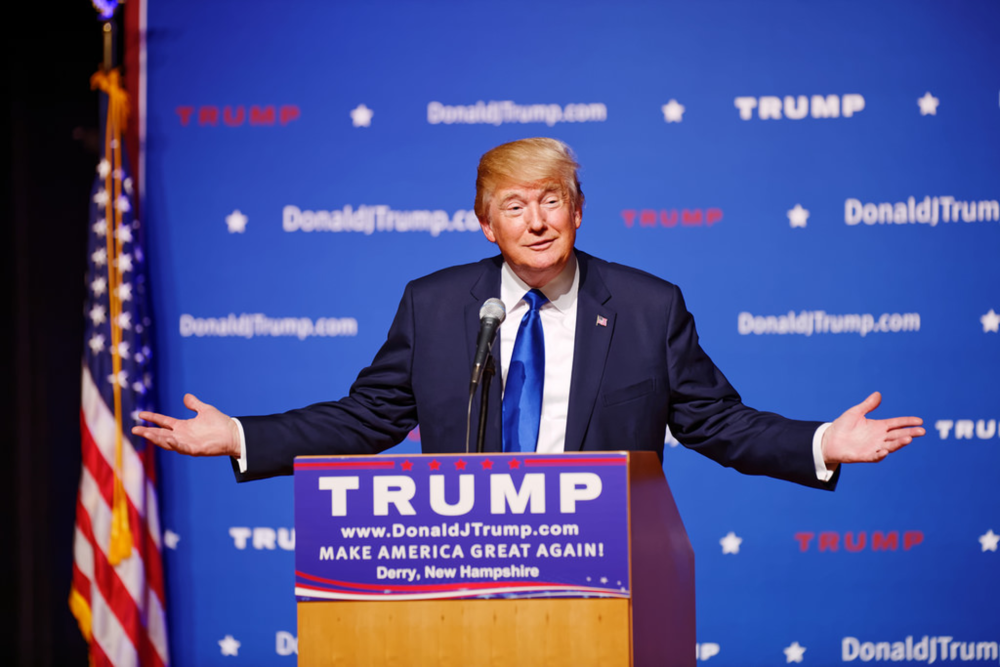It’s rote to say that every election is different, but it’s definitely true this time. For example:
-
Novice politician and abrasive personality Donald Trump is the Republican nominee, defeating 12 (mostly) career politicians in a contentious primary season.
-
He’s now openly at war with the GOP and the Republican Speaker of the House.
-
Many Republicans refuse to endorse him.
-
Texas (Texas!) is a toss-up state. A third-party candidate might win Utah!
-
Hillary Clinton won the Democratic primary, much attributed to her being the most “electable candidate.” She is now the second least popular presidential candidate in history, and will surely be the least popular president if elected.
-
Clinton’s closest advisers’ emails are slowly being leaked to the public, and many people believe Russia is involved, despite Putin’s insistence to the contrary.
We could go on. So what can marketers learn from the ridiculous 18-month campaign cycle?
Segmentation is the future
Marketers have been saying this for a long while now, but it’s usually in the context of using technology and strategies to properly target consumers. However, much of the population has segmented itself throughout the election; often to the degree that reality itself seems to bend on the whim of these increasingly polarized communities.
No matter what happens, the GOP will remain in disarray because Trump was able to segment off a core constituency of white working class workers without college degrees and turn them against the establishment party. Social media has calcified these tendencies.
“Now that users have the power to choose what news and viewpoints they’re exposed to, reaching them on a personal level through information gained from data is the only real way to make an impact,” says Will Margiloff, CEO at the marketing firm IgnitionOne.
Some Things Stay the Same
“At the end of the day, TV reigned supreme for getting the candidates’ messages across and growing their brand equity,” says Jordan Cohen, CMO at the marketing firm, Fluent. “Email, once again, remained supreme for raising funds and communicating one-to-one.”
While a particularly troubling political and social trend, these hyper-polarized segments drastically inflate the value of good, solid data.
While marketers have indeed practiced this for some time, never has there been such effective marketing against audience data than during this election cycle.
Enthusiasm Gap
Donald Trump has the following going for him: larger rallies, higher social media engagement, and more ardent supports willing to carry his message more passionately. All of that counts for exactly zero votes. If the polls are correct and Hillary wins by a significant margin, it will reinforce that social media can sometimes be more noise than an accurate assessment of the overall thoughts and feelings of the public.
Free Media
The lack of serious fundraising could be one of Trump’s serious missteps, but you can understand why he did it. He was raking in millions of dollars of free media through retweets and stories based on his 5 a.m. musings.
“Social media has been used on an unprecedented scale, from candidates speaking directly to the electorate via Twitter, through to highly targeted Facebook messages,” says Alexander Nix, CEO of London-based data firm Cambridge Analytica, a prominent provider of audience data for the GOP.
Some companies will continue to push the envelope with brazen social media as a way to cut through the clutter.
Data Is Still King
“By starting with a quantitative understanding of your audience, you can communicate with them much more effectively than you ever could if you were trying to speculate about what motivates people to vote, or purchase the way they do,” Nix says.
“[Hillary] Clinton ran the most data-driven and digitally sophisticated campaign of all time. From ultra-segmented email marketing, to precision targeted ads on Facebook, they took advantage of all the bells and whistles and used them to raise more than [twice] what Trump has been able to raise so far,” Cohen says. “It gave them enough of a financial edge to outspend Trump on TV in battleground states once the General heated up, and studies show that it has made enough of a difference in those states to most likely hand her the election.”
There’s no telling exactly how the country will look after we elect our next president. That it will be considerably more fractured and segmented after the fact, however, is clear.
Assuming proper care is taken in regards to segmentation, marketers can (and are) likely take things even further using emerging or underutilized media like virtual assistants or SMS.







